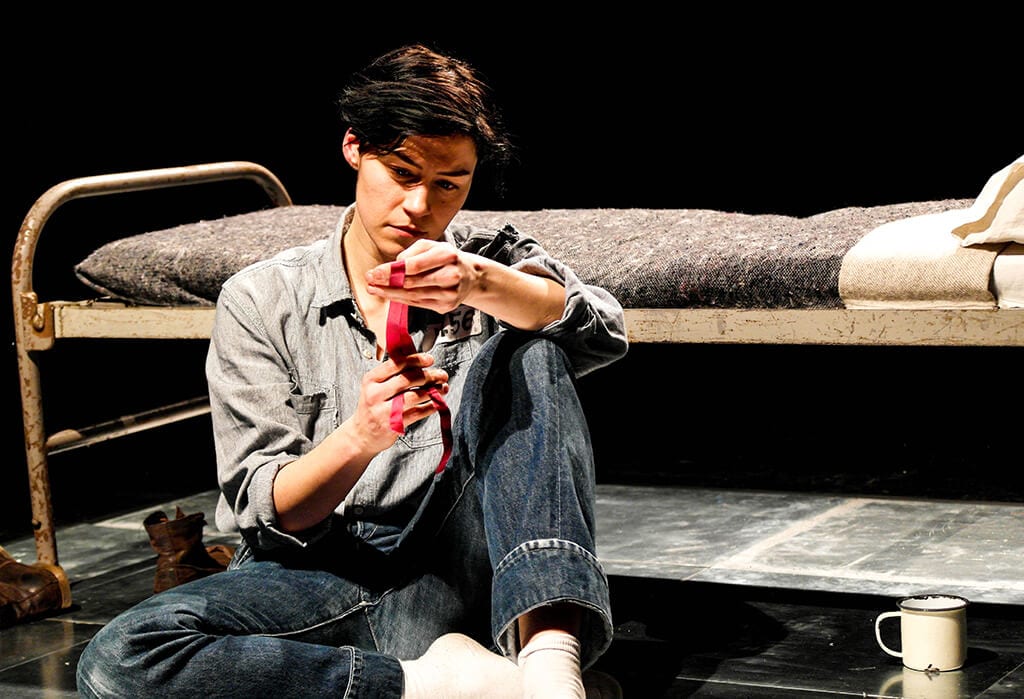America shares the death penalty with countries such as China, Iran and North Korea. Lucy Roslyn explores this (as well as issues surrounding women’s rights, mental health and gender) in her emotionally charged play, The State vs. John Hayes, which has already received stellar reviews and multiple awards on its UK tour. Needless to say, I was not disappointed.
We are in a Texas jail, in 1959. Elyese is on Death Row, on trial for murdering her husband and female lover. She sits on a small bed, in a small room, talking directly to the audience about why she is in prison. We listen to her, we laugh with her. But very quickly, it becomes clear that things are not as they seem. Elyese is in a twin cell – she shares it with John Hayes, the same man she shares a body with. As the piece goes on, it becomes less and less clear who is to blame – John, or Elyese. Do either of them deserve the electric chair?
Charismatic Lucy Roslyn was outstanding, and had the enraptured audience staring at her, open mouthed. Carrying a one-woman show is no easy feat – the actress in question must be utterly believable, entirely engaging. There is no room for mistakes. Luckily, Roslyn did not make any. The role she has written for herself is a fascinating one. John/Elyese erodes the gender binary, speaking as Elyese, but constantly harassed by the dark shadow of Hayes, who hounds her mind and body. It becomes increasingly difficult to draw the line between John and Elyese. Perhaps, here, Roslyn is commenting on the difficult position of gay women in 1950s America: does Elyese simply hide behind John in order to feel comfortable being attracted to women? Or is she really a man trapped inside a woman’s body? At times, John certainly seems to be the one with the most control. Here, gender identity becomes a primary concern for Roslyn.
The play explores other ideas too. The stigma surrounding mental health is a topical issue in the UK, with 1 in 4 of us experiencing some form of psychological issue every year. It is constantly side-lined and swept under the carpet – no one wants to discuss the ‘mad woman in the attic.’ The USA has a similar stance. Elyese’s cell is her mental prison as well as her physical one, confined to a country that is not mature enough to take schizophrenia or split personality disorder seriously enough. In this sense, Lucy Roslyn almost echoes playwrights such as Brian Friel, who use a setting in the past to discuss the present, reflecting how the same issues crop up, time and time again. In his plays, Friel suggests that Ireland is still in a state of infancy and immaturity; perhaps Roslyn implies the same about the United States. If anything, my only criticism is that these rich ideas could have been given more time to develop. An hour is not long enough to discuss all of these questions, and give satisfactory answers.
The King’s Head never disappoints, but this is the most powerful show I have seen there since 2012’s Someone To Blame. See it while you have the chance.

